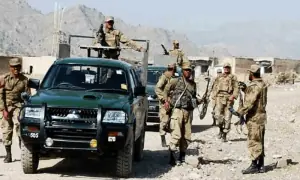Can 300 units of electricity really be provided for free?
3 min readThe campaign for the next general election has been comparatively quiet compared to the previous ones. However, as things begin to gather steam, one common slogan has emerged across multiple parties.
The last two years have seen a massive increase in the cost of living in Pakistan. Alot of this is attributed to rising fuel prices and a rapidly deteriorating exchange rate. A key feature of the deteriorating economy has been the rise in electricity prices.
Public emotion over electricity burst out into the open last August when country-wide demostrations took place over unusually high inflated bills.
Therefore, it was no surprise when both Bilawal Bhutto Zardari and Maryam Nawaz mentioned that free electricity would be provided to the less fortunate sections of society.
Bilawal put the limit at 300 units, while Maryam mentioned 200 units (her cousin, Hamza, later raised it to 300 as well) of free electricity.
The country’s electricity consumers are currently divided into protected and unprotected consumers.
The protected consumers are classified as those who consume less than 200 units per month for atleast six months, with an additional classification of ‘lifeline’ consumers for those who consume less than 100 units.
The protected category already pays less compared to the unprotected category for the energy they consume.
However, a new report has revealed that the ‘300 free units’ slogan for might not be very practical.
A recent report by the BBC Urdu quoted multiple experts to say that issues such as circular debt make such a proposal unlikely to be implemented.
Mustafa Amjad, of Renewables First, told BBC that there are only two ways of providing the free units: the government can either pay companies to generate the electricity or introduce a cross subsidy where upper slabs bear the burden for the users at the lower end.
However, he said that rising circular debt makes it unlikely that such an idea could work, as the government simply doe not have money to finance such an operation.
Another expert, Rao Amir, was quoted in the report as saying that cross subsidies could not work as the industrial sector was already complaining of higher tariffs.
Amir added that the government is already facing an uphill task to reach revenue collection targets and subsidies would make the work steeper. He said that such a scheme could cost Rs700 billion, which the government cannot spare.
The report also quoted economic journalist Shehbaz Rana as saying that two thirds of all Pakistani energy consumers use less than 300 units. Since the government aims at collecting Rs3,000 billion through bills in total, the free unit scheme could cost the government Rs2,000 billion.
Rana also added that the International Monetary Fund is unlikely to agree to any subsidies proposed by the government.
For the latest news, follow us on Twitter @Aaj_Urdu. We are also on Facebook, Instagram and YouTube.





















Comments are closed on this story.